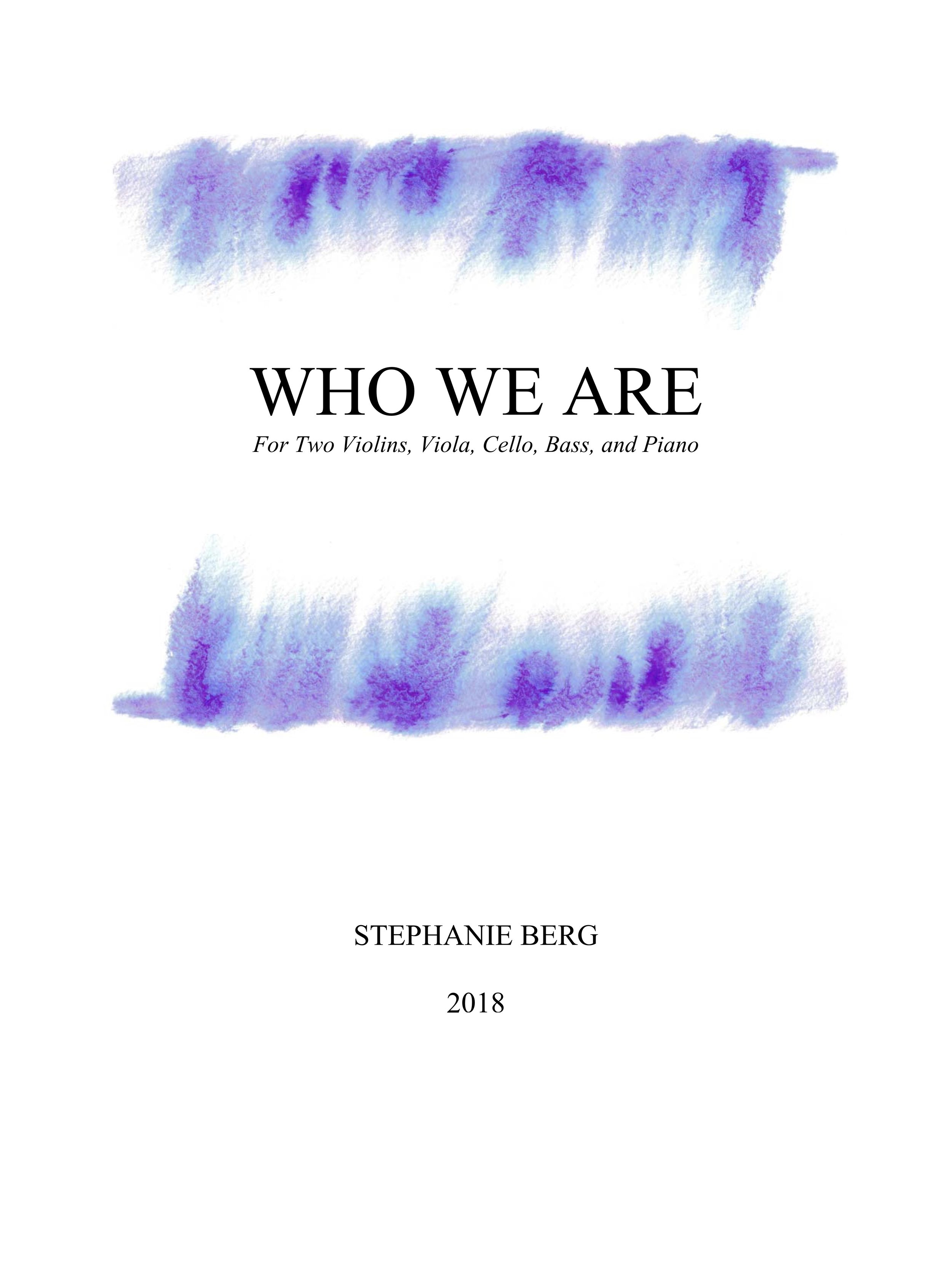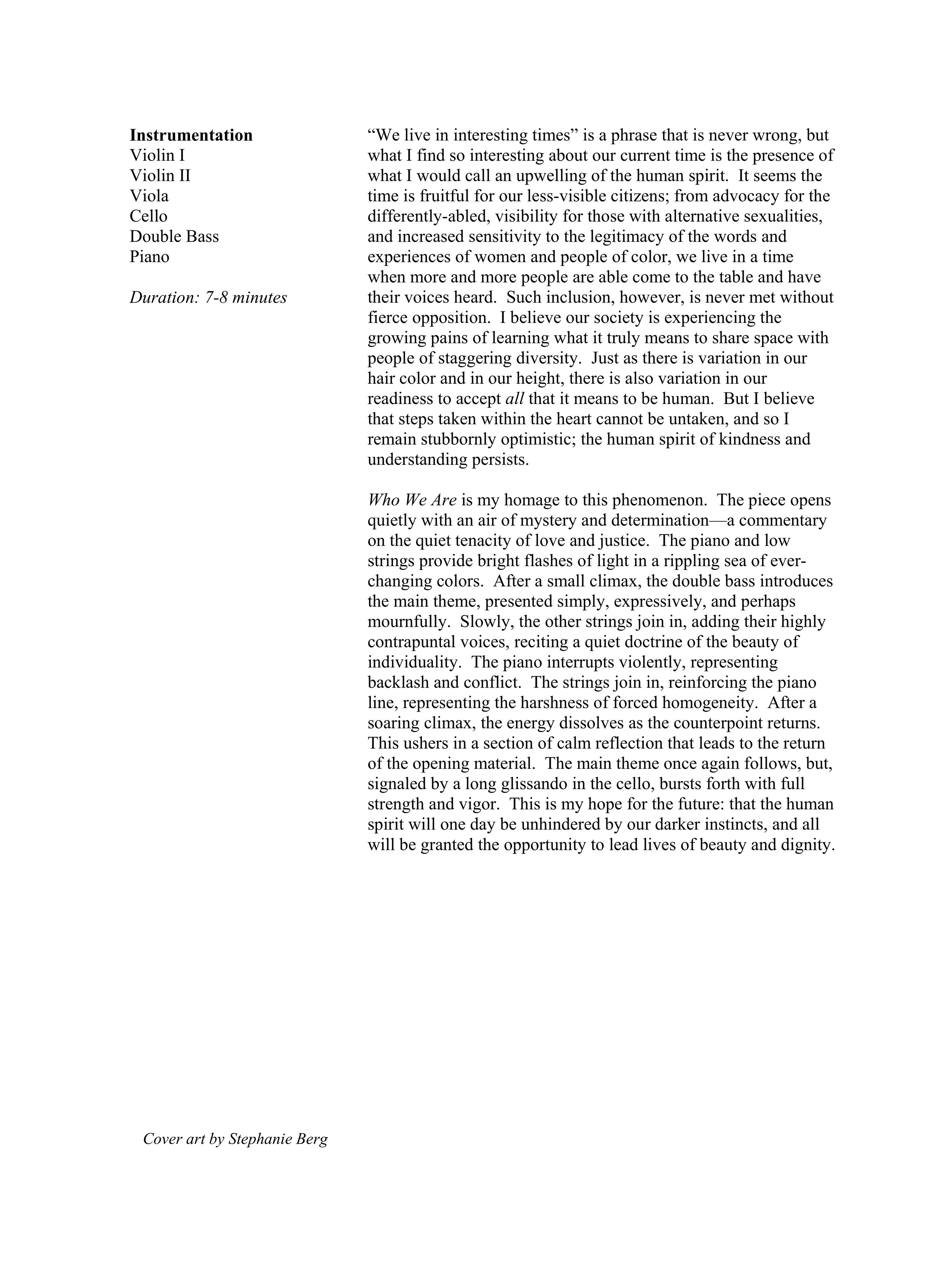Meet Composer Stephanie Berg
/In 2016, we commissioned Stephanie to write a piece for us and we loved it so much, we asked her to write another! We’re excited to premiere her new work “Who We Are” on two upcoming concerts with the theme #timesup. These concerts showcase the rich story telling and fierce intellect of women working in a field which historically, and largely continues to be, dominated by men. We asked Stephanie a few questions about her new work, and her perspective on being a women in this field.
Pulitzer Prize winning composer Jennifer Higon
Who are the women (artists, composers) who have inspired you?
I had the pleasure of both meeting Jennifer Higdon and performing her works, and I am just so impressed with her. Her music can be so raw and powerful--nothing held back--and in talking to her, I got the impression that she herself is the same way. She is truly a force to be reckoned with (while also being friendly and down-to-earth)! There are many, really, but she stands out in my mind.
In what ways has the lack of representation of women and people of color in classical music effected you? Is it something you think about notice? How old were you when you realized there is a gap in representation?
Composer and clarinetist Stephanie Berg
Somehow, I was raging “girl power" kid from the beginning. I seemed to want to go wherever people said "girls don't" or "won't” or “can’t,” whether it was mud pits, handling bugs and snakes, playing video games with my nerdy guy-pals, or dominating in my math and science classes. Part of it was that I liked to challenge convention (at, like, age 8??), but part of it was also that I wasn’t bothered by being the only girl in a situation. So when I noticed (probably high school-ish) that recognized female composers were rare, it didn’t phase me in the slightest. It was just another challenge. As far as how this has affected my career, it’s really hard to say; composition is just a hard field in general and I’m amazed at the success I’ve had in any case.
I think that it’s crucial to have conversations about representation gaps, and I am so very grateful for the people having these discussions and actively combating the problems; they've paved the way for people like me to be able to thrive in this business. But for me in my daily life, in my own brain, I find it best to proceed as if I don’t know that I’m “different.” I feel that for every door that was perhaps closed to me because I am a woman, another was purposefully opened by people who have concerts like these, for example. And I try not to let the closed doors bother me; after all, what is a closed door, but an invitation to try the handle?
Your new piece is titled "Who We Are". Can you tell us a little more about the piece and the title?
I wrote this piece with women in mind, but I also wrote it really for all marginalized people. “Who We Are” refers to who we are as human beings: resilient, strong, and enduring in the face of seemingly endless adversity. I can relate to the struggles of women to be heard and to be taken seriously, as I have walked that path. But I see those same struggles echoed in the faces of so many others as well. “Who We Are” is a call to truly see each other and the unique gifts that each of us have to offer, to honor the strength and tenacity that we all have.
Stephanie also creates beautiful scores, something the public doesn’t get to see. In addition to creating cover art for each score, she included a beautiful statement about the work. She graciously gave permission to share these here. Learn more about Stephanie and her music at stephaniejberg.com
Two chances to hear “Who We Are”! March 2 at Southwestern Illinois College and March 9 at the Missouri History Museum. Visit our events tab for details.



